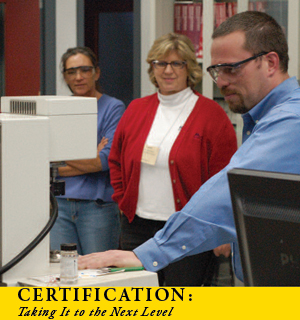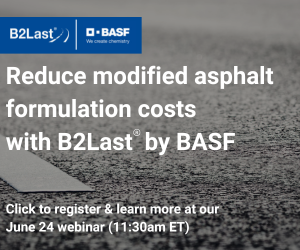
I am a big sports fan. And one of the most often repeated criticisms involving a star athlete is that he/she has yet to “take it to the next level.” Michael Jordan was well-known for having worked hard to not only make himself better, but also to make his teammates better so that the team could take it to the next level. It was this work ethic that allowed the Chicago Bulls to be NBA Champions six times in eight years back in the 1990s.
In the rest of the non-sports, business world, one way of taking it to the next level is to acquire professional certification. What is “certification?” It is simply a way of providing official recognition that a professional has successfully demonstrated knowledge and proficiency in the certification area. A CPA, Certified Public Accountant, is just one example of a professional that has demonstrated proficiency and knowledge of proper accounting practices.
It may be easy to understand why you need to be certified to be an accountant. But is certification important for a construction materials technician? To answer that question, we need to look at the Code of Federal Regulations. Issued in June 1995, 23 CFR, Part 637, Quality Assurance (QA) Procedures for Construction states: “After June 29, 2000, all sampling and testing data to be used in the acceptance decision or independent assurance program will be executed by qualified sampling and testing personnel.”
The key word in this statement is “qualified.” It means attending a training course and receiving a professional development certificate, and it means taking and passing an examination that tests the person’s knowledge and proficiency.
This latter interpretation was adopted by the Northeast Asphalt User Producer Group (NEAUPG) in the late 1990s for the certification of PG Asphalt Binder Laboratory Technicians. By resolution, both users and producers of the NEAUPG agreed that technicians responsible for PG asphalt binder testing were required to attend a certification course administered by the New England Transportation Technician Certification Program and pass a certification exam consisting of written and laboratory proficiency parts.
The success of this program in the NEAUPG, coupled with the Asphalt Institute’s (AI) own success in technology transfer, led to the development of the National Binder Technician Certification (NBTC) program. Through the NBTC program, AI’s goal is to improve testing repeatability for asphalt binders so that there is better confidence in test results and fewer disputes between asphalt suppliers and user agencies. By ensuring that technicians responsible for the testing of PG asphalt binders have been suitably trained—and have demonstrated this understanding by achieving certification—the result will be reduced testing variability.
The first steps in taking it to the next level started January 8-10, 2008, in Salt Lake City, Utah, and March 18-20, 2008, in Lexington, Kentucky. Twenty technicians from both user agencies and producers attended the two courses. Each course consisted of approximately one and a half days of lecture followed by written and laboratory proficiency exams.
The written exam included approximately 50 multiple choice questions covering the entirety of the course text, MS-25, Asphalt Binder Testing: Technician’s Manual for Specification Testing of Asphalt Binders. The test was an open book exam that had to be completed within two hours.
The laboratory proficiency exam covered hands-on demonstrations of the test procedures for the dynamic shear rheometer (DSR) and bending beam rheometer (BBR). Although other test procedures are part of AASHTO M320, it was decided that if a technician could perform these two procedures, with their detailed calibration and specimen preparation elements, then he/she could reasonably be expected to perform some of the other, less complicated procedures.
In keeping with the theme of taking it to the next level, technicians should understand that the exam covers more than simple “how to” questions. It really requires that they understand the purpose and impact of the test and procedural details. As such, the certification course and exams are intended for experienced asphalt binder technicians with at least six months of binder testing experience.
To be certified, the technician needs to pass the written exam with a minimum score of 80 percent and both parts of the laboratory proficiency exam (DSR and BBR) with minimum scores of 85 percent on each. This is no gimme, even for experienced technicians. Through the first two classes, the passing rate was approximately 60 percent—meaning that 3 out of 5 technicians achieved certification in their first time taking the exam.
Does this mean the exams are too tough? As a guide, we looked at the success rate of engineers taking the Professional Engineering (PE) Exam in civil engineering. In October 2007, the passing rate of first-time takers of the PE exam was 64 percent. Since both programs represent professional certifications, we felt that these passing rates were comparable—meaning the exam was not unduly difficult.
What’s next? The NBTC program is designed to be offered and implemented nationally to ensure a consistent understanding of the standards and laboratory best practices across state lines. In addition to offerings in Kentucky, AI is exploring partnerships to offer the certification course and exams in other locations throughout the United States beginning this winter.
AI believes that a national binder technician certification program is an important part of the effort to reduce asphalt binder testing variability. In our opinion, it is a strong complement in this purpose to the AASHTO Accreditation Program.
If you are interested in the NBTC program and reducing testing variability, then we need your help. While AI can offer certification courses and exams that are the same everywhere in the nation, the real goal of reducing testing variability will be more readily achieved by following the path of the NEAUPG in requiring technicians responsible for PG asphalt binder testing to attend a course and pass a certification exam. In other words, the NBTC program is the vehicle for ensuring that there is a consistent national certification that allows technicians to take it to the next level, but the implementation decision belongs to the individual user-producer groups.
For more information on the NBTC program, visit www.asphaltinstitute.org/NBTC.
| Mike Anderson is the Asphalt Institute’s Director of Research and Laboratory Services. |













